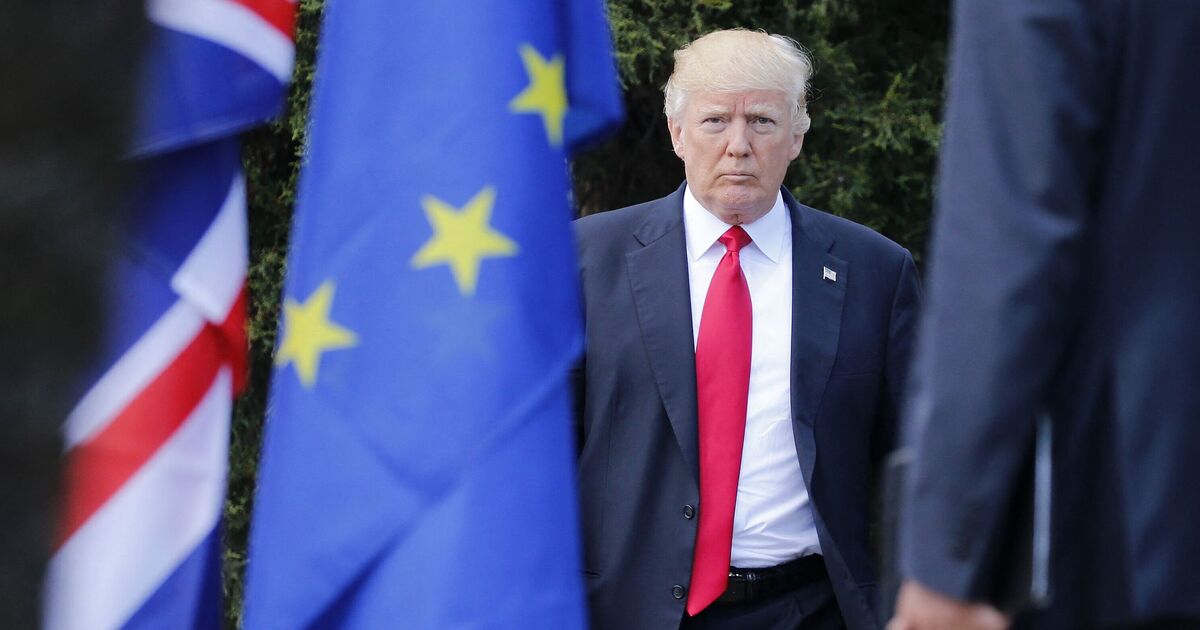

The European Union has been warned that it is no longer a priority for the United States as tensions between the two continue to rise. In April, US President Donald Trump announced a 20% tariff for all EU goods entering the country, along with 25% levies on cars and metals.
Washington later gave the bloc a 90 day pause on the levy which is due to expire in early July. However several attempts to negotiate a path forward between the European Commission and the United States have produced little by way of a breakthrough. This is despite the UK managing to secure a trade agreement and Donald Trump agreeing to talk directly to China’s President Xi Jinping. Agathe Demarais, a senior policy fellow at the European Council on Foreign Relations told Politico that the country’s approach to relations with the EU shows that the bloc is no longer a priority.
She said: “Europe is not a priority for the U.S. I don’t think that in any field, be it trade or defense or anything else actually, Europe is a priority.
“And of course, that is a bit of a surprise for Europeans in [their] discussions with U.S. officials.”
Josh Lipsky, senior director at the Washington-based Atlantic Council think tank added: “Countries like India and Japan, and even Vietnam, are higher on the priority list in the U.S. right now than the EU, because they know it's difficult and they want quick wins right now.”
Last week, Washington and London announced a trade agreement that will see tariffs reduced from 27.5% to 10% for the first 100,000 British cars shipped to the US per year whilst a 25% levy on British steel and aluminum was cut to zero.
Trump has been a long-term critic of the EU, who he believes is “nastier than China” and “formed in order to screw the United States.”
Since his inauguration in January, US officials have met with their EU counterparts on three occasions but have failed to agree on a long-term trading strategy.
The EU is believed to have developed a set of retaliatory tariffs worth €95 billion on US goods in addition to a list of potential concessions it is prepared to make in exchange for a removal of tariffs.